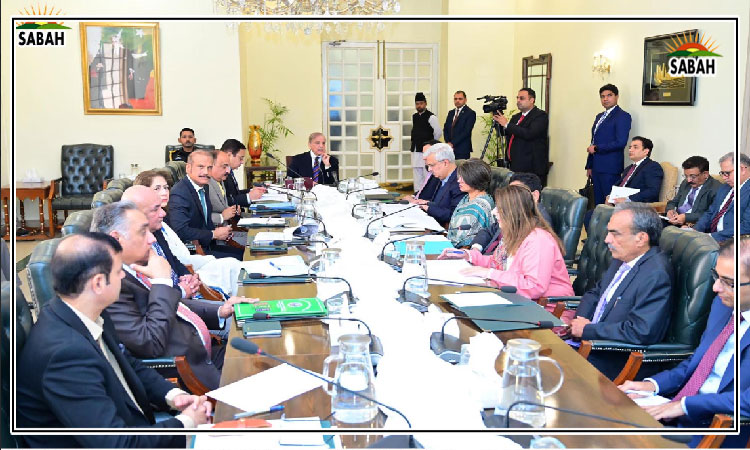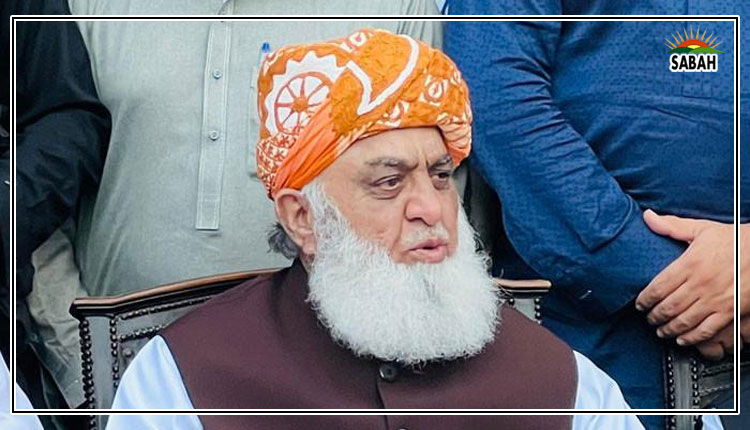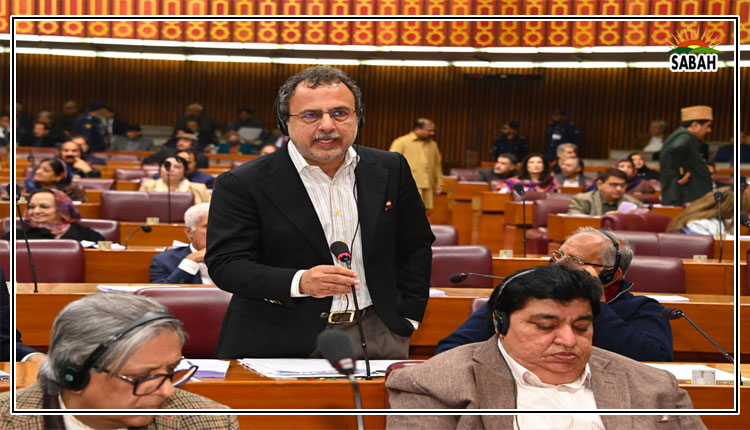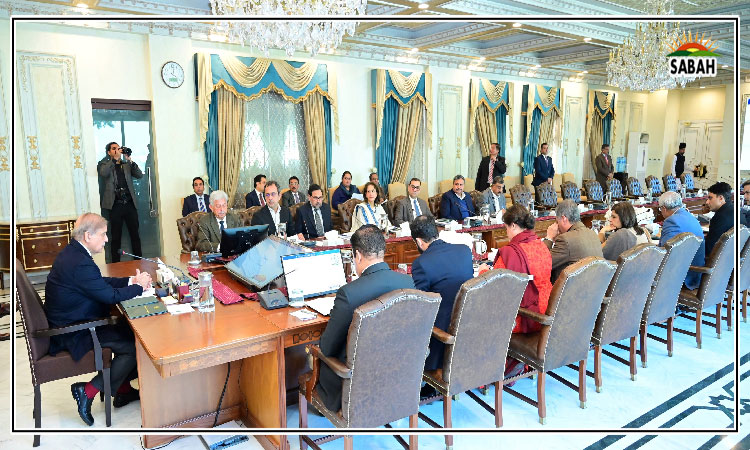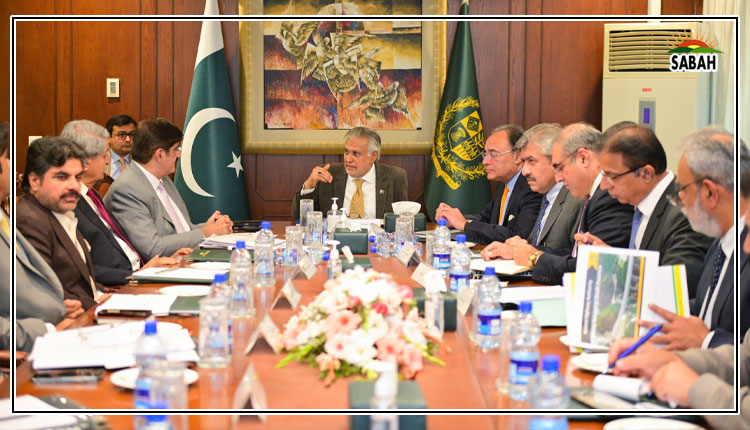Emerging technologies for innovation … Atta-ur-Rahman
With a population of over 240 million, more than 60 per cent of which is under the age of 30, Pakistan is at a crucial moment in its developmental journey.
The universities have a key role to play in the process of socio-economic development. This was not possible two decades ago because the faculty in universities was weak but the enormous progress in the research landscape of Pakistan over the last two decades, largely due to the programmes initiated by us, has now placed the universities in a position where they can change gears and start focusing their efforts on promoting innovations and entrepreneurship.
A wonderful new entrepreneurial university has been established in Pakistan recently under my stewardship that can serve as an excellent model to follow. This is the Pak Austrian Fachhochschule in Haripur Hazara. It has 13 foreign universities collaborating, four from Austria, one from Germany, one from the United Kingdom and seven from China. Its primary focus is on promoting entrepreneurship with special emphasis on the new and emerging technologies.
The university started functioning about four years ago and presently has about 3700 students in it. The strong emphasis on cultivating innovation and entrepreneurship led to the establishment of the PAF-IAST Technology Park and a Business Incubation Center (BIC). The Incubation Center has already nurtured 18 startups with support provided through mentorship and boot camps designed to foster business development. The startups have collectively generated a total of Rs148 million through grants, awards, and revenue.
The emphasis on entrepreneurship was enhanced through practical bootcamps, as the Institute seeks to cultivate an entrepreneurial mindset at all academic levels. Every student is required to spend 500 working hours in industry and the students and faculty have already won many national and international awards for their entrepreneurial activities, although the university is only four years old.
For example the ‘Sabzland Initiative’ was awarded the Social Entrepreneur of the Year2023by the BRICS and SCO Young Leaders in Kazan Russia. Edversity was ranked as the top EdTech Startupof 2023, and presented this prestigious Award by the President of Pakistan. Ecozindagi won the Prime Ministers National Innovation Award 2023 with a grant of Rs5 million. In its four-year existence, Pak-Austria Fachhochschule is blazing a historic trail for other universities to follow.
A major emphasis of Pak-Austria Fachhochschule is on developing a world class research center on artificial intelligence with support of over a billion rupees for the Ministry of IT and Telecommunications. Artificial intelligence (AI) and machine learning have already transformed industries globally, and Pakistan stands to benefit significantly from their application. AI-driven solutions can revolutionize the country’s education system, addressing gaps in rural and underdeveloped areas.
The example of Google highlights the immense impact of AI technologies on both economic growth and technological innovation. Google’s AI-powered tools, including Google Assistant and DeepMind, have redefined industries and created significant economic opportunities in the United States. In the agriculture sector, AI-powered precision farming presents opportunities for Pakistan to improve productivity and food security. By providing farmers with real-time data on soil health, weather patterns, and pest control, AI can optimize farming practices, increase crop yields, and minimize waste.
Besides artificial intelligence, other emerging technologies in the field of information technology such as robotics, and in other fields such as biotechnology, and advanced agriculture, present transformative opportunities that could redefine Pakistan’s future. The first IT policy was formulated under my supervision when I was the federal minister of science and technology during 2001. It had a huge transformative impact on the IT and telecom sector.
Pakistan can now build on it by investing in 5G and 6G telecommunications. The introduction of 5G and 6G can bring high-speed, low-latency connectivity that enables new applications such as smart cities, advanced agricultural systems, and improved internet access.
By expanding 5G/6G infrastructure, Pakistan can bridge the digital divide, particularly in rural areas, and empower millions of young people to participate in the global digital economy. Companies like Huawei in China and Ericsson in Sweden have demonstrated the transformative potential of 5G technology, enabling the development of smart cities and creating new economic opportunities. By following their example, Pakistan can modernise its infrastructure, improve service delivery, and enhance the lives of its citizens.
Pakistan’s wealth of natural resources, including coal, copper, gold, and rare earth minerals, presents significant opportunities for economic development. By integrating AI, robotics, and blockchain into mineral extraction and processing, Pakistan can enhance the efficiency of its mining sector, reduce environmental impact, and ensure transparency in supply chains.
Therefore the Pak Austrian Fachhochschule is in the process of establishing a Centre of Excellence in the field of mineral extraction and processing in close collaboration with the Chinese University of Minerals and Mining so that we do not dispose of our precious mineral resources to foreign buyers at dirt-level prices. The example of Rio Tinto, a global leader in mineral extraction that has used AI and automation to improve productivity, provides a valuable lesson for Pakistan.
Biotechnology and advanced agriculture are two other fields where emerging technologies can have a profound impact on Pakistan’s economy. Advances in biotechnology, such as genetic engineering and precision medicine, can improve healthcare outcomes and address food security.
By developing genetically modified crops that are more resilient to pests and climate changes, Pakistan can boost its agricultural productivity and ensure sustainable food supplies. I had established the Jamil-ur Rahman Centre for Genomics Research within the University of Karachi from a personal donation in the name of my father that can serve as an ideal platform for such initiatives.
For Pakistan to fully realise the potential of these emerging technologies, fostering a culture of innovation and entrepreneurship is essential. Encouraging the development of tech startups, creating technology parks, and supporting public-private partnerships will be crucial to building the infrastructure needed for innovation to thrive.
In Africa, Naspers has played a significant role in fostering innovation through investments in startups across various sectors, driving economic growth in countries like Nigeria and Kenya. Pakistan can take inspiration from such models by supporting its young entrepreneurs, particularly in fields like fintech, health tech, and agricultural technology, where local solutions can address pressing challenges.
The answer to our woes lies in quality education, science, technology and innovation. To embark on this path we need an honest, competent and efficient technocrat system of government that can change tracks and launch Pakistan on a technology-driven knowledinnovationge economy. This must be backed by a strong and independent judicial system that can root out mega corruption through capital punishment.
Courtesy


